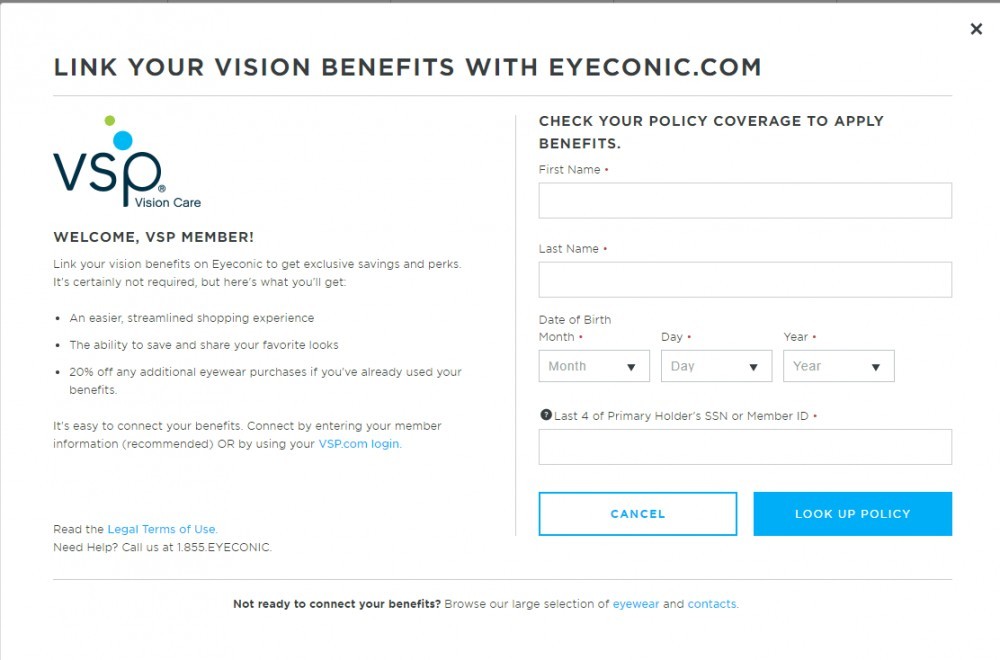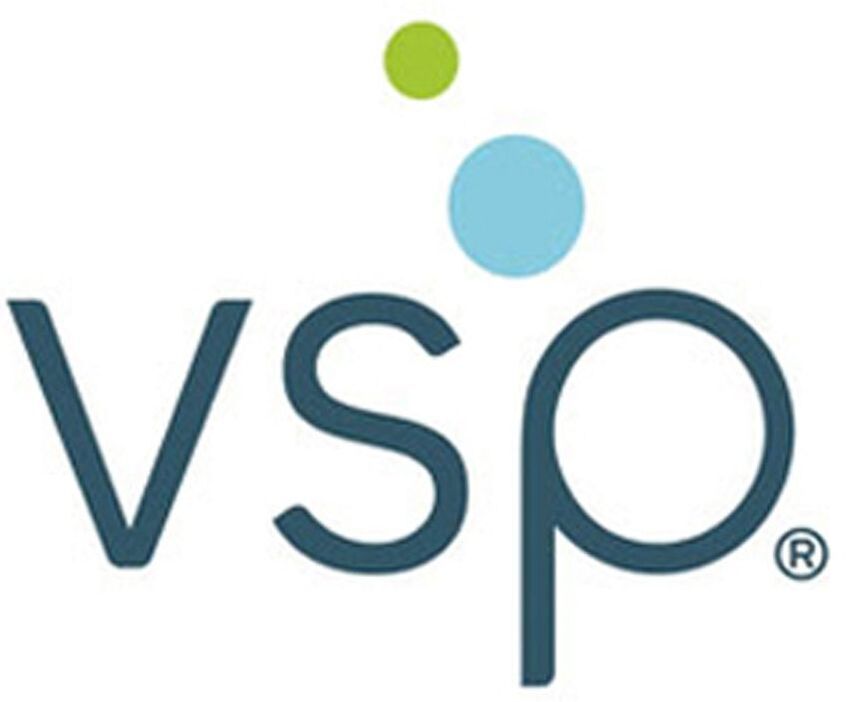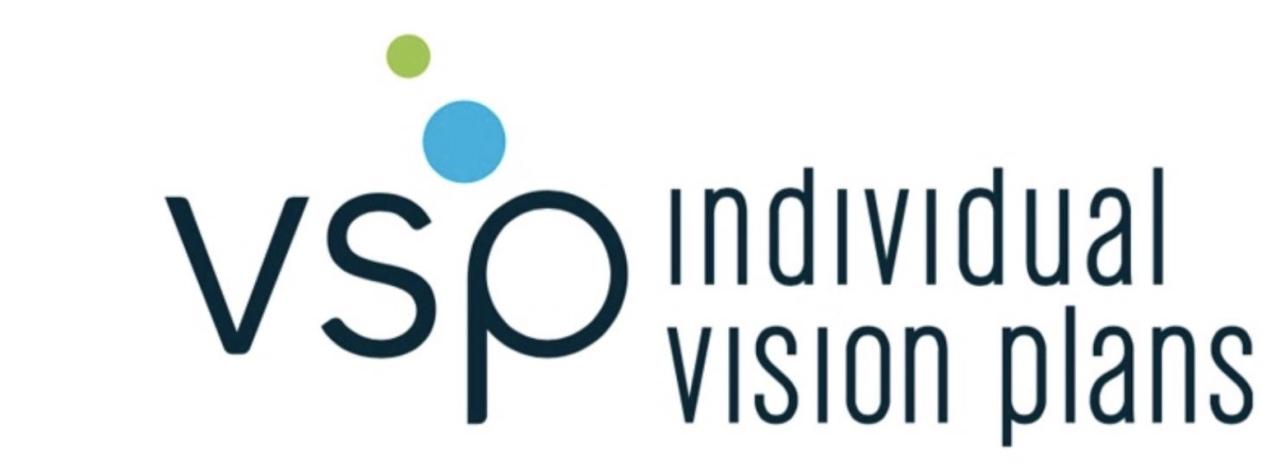VSP Insurance stands as a beacon of comprehensive vision care, offering a wide array of services and plans to safeguard your eye health and vision. From routine eye exams to corrective lenses, VSP empowers individuals and families to prioritize their vision with confidence.
VSP Insurance goes beyond simply providing coverage; it fosters a commitment to personalized care, ensuring that members have access to a vast network of qualified eye care professionals. Whether you require a routine checkup or specialized treatment, VSP connects you with the right provider to meet your specific needs.
VSP Insurance Overview
VSP Insurance is a vision care insurance plan that helps individuals and families pay for eye exams, eyeglasses, contact lenses, and other vision-related services. VSP works by creating a network of eye care professionals, including optometrists and ophthalmologists, who have agreed to provide services at discounted rates to VSP members.
How VSP Insurance Works
VSP insurance operates on a managed care model, meaning that members are encouraged to use providers within the VSP network to access the most affordable care. When you choose a VSP plan, you’ll select a coverage level, which determines the amount of coverage you have for different services.
Types of Vision Care Services Covered, Vsp insurance
VSP insurance typically covers a wide range of vision care services, including:
- Eye exams: Routine eye exams are crucial for maintaining good eye health and detecting potential vision problems. VSP plans usually cover regular eye exams, allowing members to receive necessary checkups.
- Eyeglasses: VSP insurance helps cover the cost of eyeglasses, including frames and lenses. Members can choose from a wide selection of frames and lenses within their plan’s coverage limits.
- Contact lenses: Contact lenses provide an alternative to eyeglasses for vision correction. VSP plans often cover the cost of contact lenses, allowing members to choose from different types and brands.
- Vision therapy: Some VSP plans may cover vision therapy, a specialized treatment that aims to improve visual skills and address certain eye conditions.
- Laser eye surgery: In some cases, VSP insurance may offer coverage for laser eye surgery, such as LASIK, which can permanently correct refractive errors.
Benefits of VSP Insurance
VSP insurance offers several benefits for individuals and families, including:
- Cost savings: VSP insurance can significantly reduce the cost of vision care by providing discounts on eye exams, eyeglasses, and contact lenses. This can help individuals and families save money on essential vision care services.
- Access to a network of providers: VSP has a vast network of eye care professionals across the country, making it easy for members to find a provider near them. This ensures convenient access to quality vision care.
- Preventive care: VSP insurance encourages regular eye exams, which are crucial for maintaining good eye health and detecting potential vision problems early on. Early detection and treatment can prevent more serious vision issues from developing.
- Peace of mind: VSP insurance provides peace of mind knowing that you have financial protection for unexpected vision care needs. This can help alleviate stress and financial burdens associated with vision care expenses.
VSP Insurance Plans
VSP offers a range of insurance plans to cater to different needs and budgets. Understanding the differences between these plans is crucial for choosing the right coverage for you. This section explores the various VSP insurance plans, their coverage options, and their associated costs.
VSP Plan Options
VSP provides various insurance plans, each offering different levels of coverage and costs. These plans are categorized into three main groups:
- Individual Plans: These plans are designed for individuals who want to cover their own vision care needs. They offer flexibility in choosing coverage options and are ideal for those who prefer to manage their own insurance.
- Group Plans: Group plans are offered through employers or organizations and are often more affordable than individual plans. They provide vision care coverage for a group of individuals, often with negotiated rates and benefits.
- Medicare Plans: VSP also offers Medicare-approved plans for individuals enrolled in Medicare. These plans are designed to meet the specific vision care needs of Medicare beneficiaries.
VSP Plan Coverage and Costs
VSP plans vary in coverage options and costs, depending on the specific plan chosen. Here are some key factors to consider:
- Eye Exams: VSP plans typically cover routine eye exams, which are important for detecting vision problems and ensuring overall eye health. The frequency of covered exams varies depending on the plan, with some plans covering exams annually while others cover them biannually.
- Frames and Lenses: VSP plans provide coverage for frames and lenses, with varying allowances for different types of lenses, such as single-vision, bifocal, or progressive lenses. Some plans also offer coverage for contact lenses.
- Vision Care Services: VSP plans may cover various vision care services, including laser eye surgery, cataract surgery, and other specialized procedures. The extent of coverage varies depending on the plan.
- Out-of-Pocket Costs: VSP plans involve out-of-pocket costs, such as deductibles, copayments, and coinsurance. These costs vary depending on the plan chosen and the services used.
Examples of Specific Plan Features and Benefits
VSP offers a variety of plans with unique features and benefits. Here are some examples:
- VSP Choice: This plan offers a wide range of coverage options and benefits, including a broad network of participating providers, generous allowances for frames and lenses, and coverage for various vision care services.
- VSP Select: This plan provides more affordable coverage than VSP Choice, with a smaller network of providers and lower allowances for frames and lenses. It is a good option for individuals who prioritize affordability over extensive coverage.
- VSP Direct: This plan is designed for individuals who prefer to purchase their frames and lenses directly from VSP’s online store. It offers a convenient and affordable way to access vision care products.
Eligibility and Enrollment
VSP insurance is designed to provide vision care benefits to individuals and families. Eligibility for VSP insurance plans varies depending on the specific plan and your employer or group affiliation. Generally, individuals can enroll in VSP plans through their employer, a group, or directly through VSP.
Enrollment Process
To enroll in a VSP insurance plan, you typically need to follow a specific process, which may vary depending on your enrollment method. Here’s a general overview of the enrollment process:
Steps for Enrollment
| Step | Description | Required Documentation |
|---|---|---|
| 1. Determine Eligibility | Confirm your eligibility for VSP insurance based on your employer, group, or individual plan options. | Employer or group information, if applicable. |
| 2. Select a Plan | Choose the VSP insurance plan that best suits your needs and budget. | Plan brochure or online information. |
| 3. Complete the Application | Fill out the VSP insurance application form with accurate personal and contact information. | VSP insurance application form. |
| 4. Provide Payment Information | Provide payment information, such as your credit card or bank account details, for premium payments. | Payment information. |
| 5. Review and Submit | Review your application thoroughly and submit it to VSP. | Completed application. |
Finding a VSP Provider

Finding the right eye care professional is crucial for maintaining your eye health and ensuring you get the most out of your VSP insurance. VSP has a vast network of providers across the United States and beyond, offering a wide range of services to meet your specific needs.
Locating VSP Providers
To locate VSP-affiliated eye care professionals, you can utilize the VSP website or mobile app. The website features a comprehensive provider directory that allows you to search for providers based on your location, specialization, and other preferences. You can also use the VSP mobile app to find providers on the go.
Choosing the Right Provider
- Location: Consider the proximity of the provider to your home or work. This will make it easier for you to schedule appointments and access care when needed.
- Specialization: VSP providers offer a wide range of specialties, including general optometry, ophthalmology, and contact lens fitting. Choose a provider who specializes in the area of eye care you require.
- Patient Reviews: Online reviews can provide valuable insights into the quality of care provided by different providers. Read reviews from previous patients to get a sense of their experience and satisfaction.
VSP Providers by Region
| Region | Provider Name | Specialization |
|---|---|---|
| California | ABC Eye Care | General Optometry |
| New York | XYZ Vision Center | Ophthalmology |
| Texas | 123 Eye Clinic | Contact Lens Fitting |
Coverage and Benefits

VSP insurance plans offer a variety of coverage options, including eye exams, eyeglasses, and contact lenses. The specific benefits included in each plan vary depending on the chosen plan and the individual’s needs.
Covered Services
VSP insurance plans typically cover the following services:
- Eye Exams: Regular eye exams are essential for maintaining good eye health and detecting any potential vision problems. VSP plans usually cover a comprehensive eye exam, which includes checking for eye diseases, measuring your vision, and assessing your eye health.
- Eyeglasses: VSP plans cover the cost of eyeglasses, including frames and lenses. The amount of coverage for eyeglasses varies depending on the plan, with some plans offering a higher allowance for frames and lenses.
- Contact Lenses: Many VSP plans also cover the cost of contact lenses. The coverage for contact lenses may vary depending on the plan and the type of lenses needed. Some plans may have a limit on the number of contact lens prescriptions covered annually.
Limitations and Exclusions
It’s important to note that VSP coverage has limitations and exclusions. Some common limitations and exclusions include:
- Pre-existing Conditions: VSP may not cover eye conditions that existed before you enrolled in the plan.
- Cosmetic Procedures: VSP plans typically do not cover cosmetic procedures, such as LASIK surgery.
- Certain Eye Conditions: Some eye conditions may not be covered by VSP, such as certain types of eye diseases or injuries.
Plan Specific Benefits
To understand the specific benefits and limitations of a particular VSP insurance plan, it’s important to review the plan documents carefully. These documents will provide detailed information about the coverage, benefits, and exclusions.
Costs and Payment

Understanding the cost structure of VSP insurance is crucial for making informed decisions about your vision care. This section Artikels the different costs associated with VSP insurance and how you can pay for your premiums.
VSP Insurance Premiums
VSP insurance premiums are the monthly or annual fees you pay to maintain your coverage. These premiums vary depending on several factors, including:
- The specific VSP insurance plan you choose. Different plans offer varying levels of coverage and benefits, which directly impact the premium cost.
- Your age. Generally, older individuals may pay higher premiums due to a higher likelihood of needing vision care.
- Your location. Geographic location can influence premium costs due to variations in healthcare expenses.
- Your employer. If your employer offers VSP insurance as a benefit, they may contribute to the premium cost, reducing your individual out-of-pocket expenses.
VSP Insurance Copayments
Copayments are fixed amounts you pay for specific services, such as eye exams or eyeglasses, when you visit a VSP provider. Copayments are typically lower for preventive care services like routine eye exams and higher for more complex procedures or treatments.
Payment Options for VSP Insurance Premiums
VSP offers various convenient payment options to make paying your premiums easy:
- Direct debit: This option automatically deducts your premium from your bank account on a recurring basis, eliminating the need for manual payments.
- Credit card: You can pay your premium using a major credit card, providing flexibility and potentially earning rewards points.
- Check or money order: You can mail a check or money order to VSP’s designated address.
- Online payment portal: VSP’s online portal allows you to manage your account, view your billing history, and make secure payments.
Billing Procedures
VSP typically sends you a monthly or annual bill for your premium. You can also access your billing information through your online account. If you have any questions or need assistance with billing, VSP’s customer service team is available to help.
VSP Insurance for Employers
Offering VSP insurance to your employees can be a valuable investment, enhancing employee satisfaction and fostering a healthy work environment. By providing access to quality vision care, you demonstrate your commitment to your employees’ well-being, leading to a more engaged and productive workforce.
Enrollment Process
Employers can enroll in VSP insurance through a straightforward process. You’ll need to contact VSP directly to discuss your specific needs and explore the available plans. VSP representatives will guide you through the enrollment process, providing information on plan options, pricing, and administrative procedures. Once you’ve chosen a plan that aligns with your company’s requirements, VSP will handle the enrollment and administration of your employee vision benefits.
VSP Insurance Plans for Businesses
VSP offers a variety of insurance plans tailored to meet the diverse needs of businesses. Here are some examples:
- VSP Choice: This plan provides a wide range of coverage options, allowing employees to select the vision care services that best suit their individual needs.
- VSP Select: This plan offers a more affordable option with a fixed copay for services, providing predictable costs for both employers and employees.
- VSP Vision Care: This plan offers a comprehensive package of vision care benefits, including eye exams, frames, and contact lenses, at competitive prices.
VSP Insurance and Eye Health
VSP Insurance understands the importance of maintaining good eye health. Your vision is a crucial part of your overall well-being, and regular eye exams and preventative care can help you keep your eyes healthy for years to come. VSP Insurance offers a range of resources and benefits to support you in your eye health journey.
Importance of Regular Eye Exams
Regular eye exams are essential for maintaining good eye health. They allow your eye doctor to detect early signs of eye conditions, which can be treated more effectively when caught early. Even if you don’t experience any vision problems, it’s important to have regular eye exams, as some eye conditions can develop without any noticeable symptoms.
Here are some of the benefits of regular eye exams:
- Early detection and treatment of eye conditions, such as glaucoma, cataracts, and macular degeneration.
- Monitoring of existing eye conditions to ensure they are being managed effectively.
- Assessment of your overall health, as some eye conditions can be a sign of other health problems.
- Prescription updates for glasses or contact lenses.
Preventative Eye Care
In addition to regular eye exams, there are several things you can do to help prevent eye conditions and maintain good eye health. These include:
- Wear protective eyewear when engaging in activities that could pose a risk to your eyes, such as sports, DIY projects, or working with chemicals.
- Quit smoking. Smoking can increase your risk of developing several eye conditions, including cataracts, macular degeneration, and diabetic retinopathy.
- Eat a healthy diet rich in fruits, vegetables, and omega-3 fatty acids. These nutrients can help protect your eyes from damage.
- Maintain a healthy weight. Obesity can increase your risk of developing diabetes, which can lead to diabetic retinopathy.
- Get regular exercise. Exercise can help improve blood circulation and reduce your risk of developing eye conditions.
- Protect your eyes from the sun by wearing sunglasses that block 99-100% of UVA and UVB rays.
Common Eye Conditions
There are many common eye conditions that can affect people of all ages. Some of the most common conditions include:
- Refractive errors, such as nearsightedness, farsightedness, and astigmatism. These conditions can be corrected with glasses, contact lenses, or refractive surgery.
- Glaucoma is a condition that damages the optic nerve, which connects the eye to the brain. It can lead to blindness if left untreated. Early detection and treatment are crucial for managing glaucoma.
- Cataracts are cloudy areas that form on the lens of the eye. They can cause blurry vision and make it difficult to see at night. Cataracts can be removed with surgery.
- Macular degeneration is a condition that affects the central part of the retina, called the macula. It can cause blurred or distorted vision. There is no cure for macular degeneration, but there are treatments that can slow its progression.
- Diabetic retinopathy is a complication of diabetes that can damage the blood vessels in the retina. It can cause vision loss and even blindness. Regular eye exams are essential for people with diabetes to detect and manage diabetic retinopathy.
Closing Summary
VSP Insurance is more than just an insurance provider; it’s a partner in your vision journey. With its commitment to quality care, diverse plan options, and user-friendly resources, VSP empowers you to navigate the world of vision care with ease and clarity.
VSP insurance offers vision care coverage, including eye exams and glasses. You might be wondering how this compares to direct insurance , which provides coverage for a wider range of health needs. While direct insurance offers broader protection, VSP specializes in vision care, ensuring you have access to the best possible eye care services.